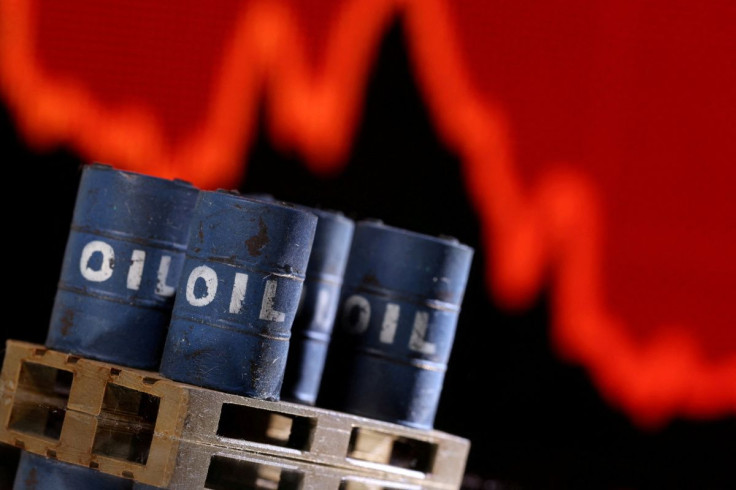Shares, Oil Volatile Ahead Of NATO Russia-Ukraine Summit

World share markets were choppy on Thursday as the Russia-Ukraine war kept oil above $120 a barrel, while worries about "stagflation" rose on renewed talk of aggressive U.S. interest rates hikes and slowing growth.
Europe's main stock indexes barely budged and government bond yields edged up toward multi-year highs hit earlier in the week as March PMI data came in reassuringly robust.
Focus was otherwise on a special NATO summit taking place in Brussels, which U.S. President Joe Biden will attend, to discuss further responses to Russia's month-old invasion of Ukraine.
Rabobank's head of macro strategy, Elwin de Groot, said markets would be closely watching what emerges, especially how unified NATO members remain and what Biden can offer European countries to help wean themselves off Russian gas.
"The NATO meeting is certainly important," de Groot said. "At the minimum you would expect the members to come up with preparations for a possible further escalation in the Ukraine war."
Wall Street futures were up a solid 0.4% ahead of trading there. Russia's main stock market also made gains as it reopened, albeit with tight controls on selling in place, after being shut for weeks since Moscow launched what it calls its "special military operation" in Ukraine.
MSCI's main world stocks index, which no longer includes Russian companies, has regained 8% over the last week but it is still more than 7% below its January levels, and investors' mood remains fragile.
MSCI's broadest index of Asia-Pacific shares outside Japan had ended down 0.6% overnight after more falls in China and Hong Kong [.SS], although Japan's Nikkei hit a nine-week high as exporters cheered the yen hitting its lowest against the dollar since 2015. [L2N2VR0D6]
It was last at 121.65 yen per dollar, fuelled by expectations that the Bank of Japan will be far behind other top central banks in raising interest rates.
"The sharp hawkish repricing of Fed rate hike expectations has mainly benefited the U.S. dollar against low yielding currencies whose own domestic central banks are expected to lag well behind the Fed in tightening policy," MUFG currency analyst Lee Hardman wrote in a note to clients.
HAWKISH
Driving some of the volatility, some top Federal Reserve policymakers on Wednesday signalled they stood ready to take more aggressive action to bring down decades-high inflation, including a possible half-percentage-point rate hike at the next policy meeting in May.[.N]
That was followed on Thursday by Dutch European Central Bank Executive Board Member Frank Elderson saying he wouldn't rule out the ECB raising its rates too this year.
It helped reignite selling in the bond markets that have been unsettled all year by rising global inflation and signs that central banks will need to ratchetup interest rates.
The yield on benchmark 10-year Treasury notes was up at 2.37% and German bunds crept over 0.52%, while oil and gas markets also remained jumpy amid all the geopolitical uncertainty.
Russian President Vladimir Putin said on Wednesday that Moscow would seek payment in roubles for gas sold to "unfriendly" countries, jolting energy markets, although Italy's President Mario Draghi said it planned to keep paying in euros.
Ahead of U.S. trading, Brent futures were little changed at $121.67 a barrel while U.S. West Texas Intermediate futures fell 41 cents, or 0.35%, to $114.5 a barrel
EU leaders are expected to agree at a two-day summit starting on Thursday to jointly buy gas, as they seek to cut reliance on Russian fuels and build a buffer against supply shocks. But the bloc remains unlikely to sanction Russian oil and gas.
"Inflation is really the big driver," Rabobank's de Groot said of the moves in global markets, adding that it was also behind falling consumer confidence and rising recession risks.
© Copyright Thomson Reuters 2024. All rights reserved.



















